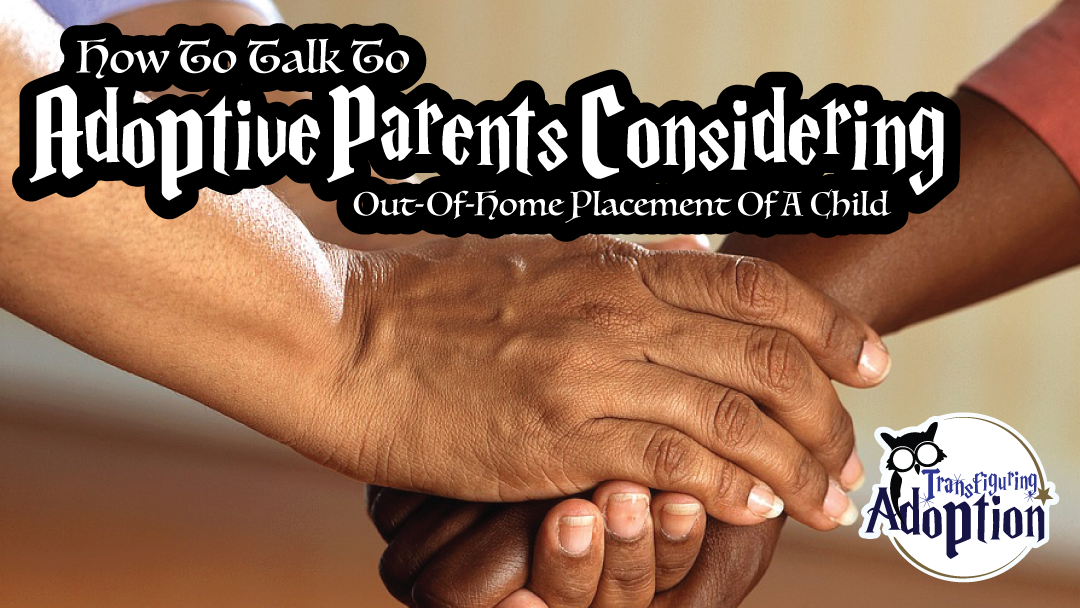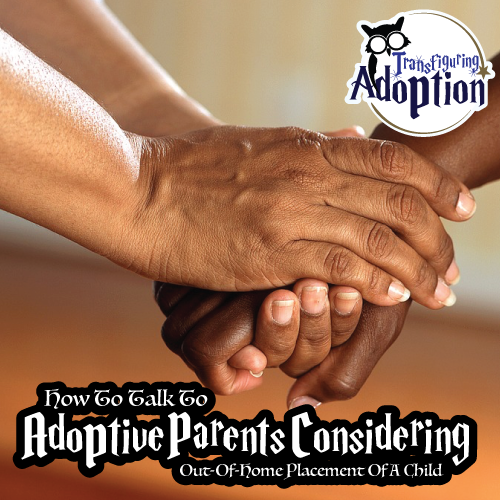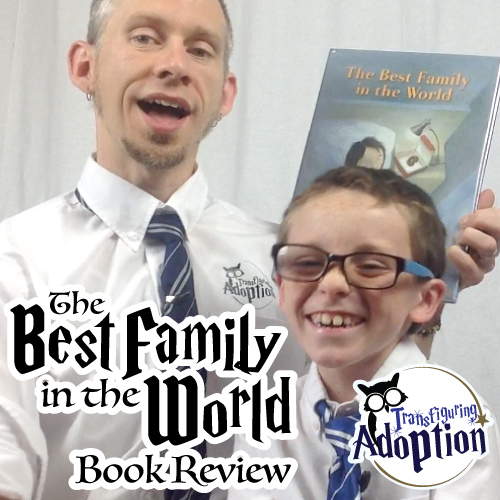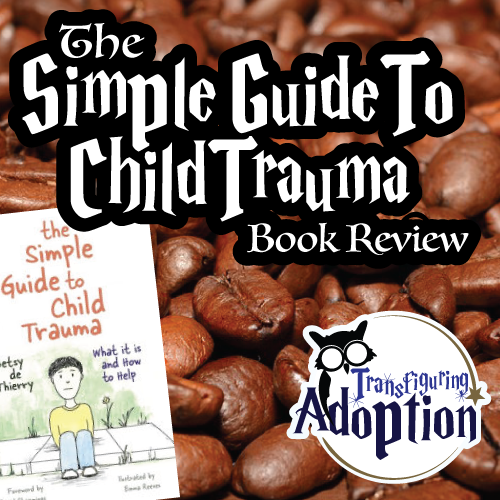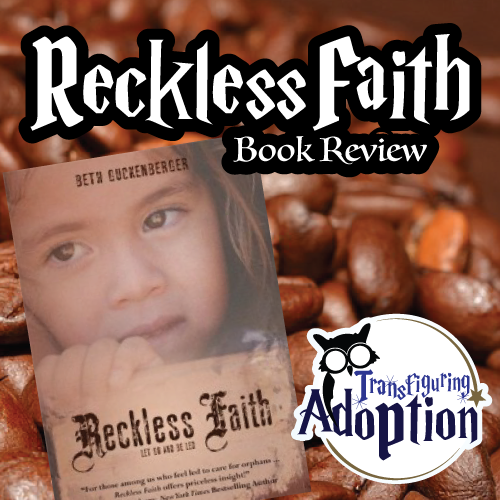I avoid online foster care and adoption groups like the plague these days. I have found I do not have the emotional energy for the drama and judgement that can be as prevalent in these groups as they are across social media. I have seen fellow foster and adoptive parents begging for help or a listening ear only to be dismissed, judged, or ridiculed by others in our community.
One such conversation I read recently dealt with out-of-home placement of an adopted child. I somewhat expect condemnation and a lack of understanding to come from the general population when it comes to the heart-wrenching decision to place a child in residential treatment or to allow one’s adoptive parental rights to be terminated. Granted, there are many cases where out of home placement or “readoption” should not happen, where a parent just gives up and walks away because this life is not all cupcakes and sunshine—not simply the “miracle” of “saving a child” that adoption often gets misconstrued as.
So, it IS important to talk about the situations in which an out-of-home placement of an adopted child or disruption of a foster placement is in the best interest of all involved. It IS vital that every other option be explored before this last resort. What I was disappointed to see was the attack on the adoptive parents who were in such situations.
In My Own Home…
We found ourselves in this heart-breaking, lowest of lows last summer, and let me tell you, parents in this situation likely need no help questioning themselves. We questioned over and over if we had failed as adoptive parents, if we were making the right decisions, and whether we should have adopted in the first place. We asked ourselves over and over how to show this child that in no way, shape, or form were we giving up, and their place in our family was solid, even though it would look much different being in residential treatment as opposed to our home. We struggled with loving the child well while abhorring the behavior (which resulted from trauma inflicted upon the child) that resulted in the need for residential treatment.
How should you talk to a parent considering disrupting a foster or adoptive placement?
What points should you consider?
- Safety of ALL family members is top priority.
Most adoptive and foster parents know all to well what disrupting a placement does to a child, and they do not wish to inflict that kind of trauma needlessly. However, there are situations in which other members of the family face daily harm and stress leading to a breaking point. If another child or family member is being physically or sexually harmed, and all types of safety measures have been put in place to no avail, there comes a point when there is no other option but to remove the child from the home. And at times, the family no longer has a choice and some other authority steps in and says the child must go elsewhere. - Needs of the child are sometimes better met in a different setting.
Our kids spent years bouncing around in foster care. When kids bounce from home to home, more trauma is added to their traumatic history, and there is often little adequate therapy occurring for either the past or current trauma. We realized our child had had very little trauma-based therapy. At residential treatment, there was weekly individual therapy, weekly family therapy, group therapy three days a week, and recreational therapy five days a week, all through a trauma-focused lens. There is no way this child could receive so many services in a home environment! In a year, a child living in a home environment realistically only sees a therapist maybe thirty times once one accounts for all the weeks where the therapist is sick, on vacation, at a training, or can’t travel due to weather or the family has a similar reason for not being able to attend therapy. - Have compassion.
Realize these parents are likely to be grieving and experiencing a major loss. Their dreams and visions for their child and family are being dashed. Seek to understand. - Offer help and support.
What can you do to help the family? Is there something you can do to help them avoid the need to place the child outside of their home? If they are placing the child in residential treatment or otherwise disrupting a placement, consider practical ways you can help decrease their stress during this time of loss. Can you help with packing and moving the child? If the child’s going to residential treatment, are there items they need help purchasing or gathering? There are often very specific clothing and personal items required by treatment facilities. We easily spent countless hours and dropped quite a chunk of un-budgeted dollars prepping for our child’s move. Is there research you can help with? Phone calls inquiring into every facility within a couple hundred mile radius was one of the most emotionally exhausting tasks I’ve completed. Some days I avoided it completely and found other to-do list items. When our child was discharged, we spent two months researching and setting up all the services needed. Can you give them a few hours off from caring for other kids in the home so they can get things done or decompress? Can you simply offer a non-judgemental, listening ear?
Ideally, adoptive and foster parents would be well informed of all current and future needs of children BEFORE placement with full disclosure by the placing agency. Though our children had been in care for quite some time before they were placed with us, issues were glazed over or completely left out of placement discussions. Some issues only crop up later when a child goes through a new developmental stage or an old trauma no one knows about is triggered, resulting in dangerous or harmful behavior. Ideally, all adoptive and foster parents would live in an area with ample services to support a successful placement for the long haul. Ideally, they would be surrounded by a network of friends and family who can help them succeed.
The reality is parents are often ill-informed and ill-prepared, services needed to avoid disruption are scarce in urban areas and nonexistent in rural areas, and foster and adoptive children (unlike biological children raised in a nurturing environment) have faced traumas that have caused their brains to be rewired resulting in behaviors that can make certain family situations unsafe and unlivable. Disruption is not always avoidable, and these parents should not be condemned but rather aided in any way possible.
